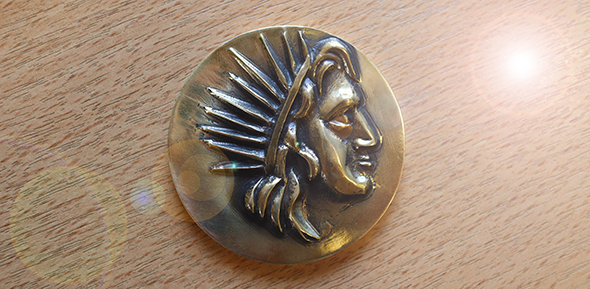
The winners of the Department’s Helios Prize – awarded for graduate research in sustainable energy or energy efficiency – have been announced.
The Helios prize is made possible thanks to a generous donation from Cambridge alumnus John Firth. He approached the Department specifically to set up the prize in honour of graduate work in sustainable energy or energy efficiency.
Winner of the first prize is Matteo Craglia, final year PhD student in the Department of Engineering, looking at energy efficiency in the transport sector. Matteo is supervised by Dr Jonathan Cullen and won the prize for his paper: Do technical improvements lead to real efficiency gains? Disaggregating changes in transport energy intensity.
Runner-up is Krishan Chana, final year PhD student studying at the Department's Whittle Laboratory, for his paper The Effect of Reaction on Compressor Performance which he presented at the American Society of Mechanical Engineering (ASME) IGTI Conference.
Matteo summarises his paper below.
"Improving the energy efficiency of vehicles is urgent if the UK is to reduce its demand for fossil fuels and combat climate change. In this paper, we test whether policies aiming to improve the energy efficiency of British cars have been successful, using driver-reported data for the first time. This is particularly important now that it is increasingly clear that official fuel consumption values reported by vehicle manufacturers are unrepresentative of the real-world driving conditions reported by consumers.
"We firstly show that the real-world fuel efficiency of new cars in Great Britain has improved by far less than widely reported. Using a new method combining multivariate regression and decomposition techniques, we present estimates of the technical efficiency improvements in vehicles between 2001 and 2018 (from e.g. improved combustion, aerodynamics and lightweight materials). Rather than reducing energy use, we show that two thirds of these technical efficiency improvements were offset by increasing vehicle size and power. Strong policies are therefore necessary to ensure technical improvements lead to real energy savings."
Krishan summarises his paper below.
"During my PhD., my research has focussed on jet engine aerodynamics. In the field, little is known about the effect of the centrifugal force on rotating compressor blades. The paper develops a unique model in computational fluid dynamics which allows us, for the first time, to understand the effect rotation has on jet engine performance independent of other effects. What I have enjoyed most is being able to use a variety of mathematical tools and computer programs to create a novel solution to a problem that has not been understood before. I have collaborated with designers at Rolls-Royce plc. to implement the work in the analytical routines they run daily, which could significantly improve performance predictions made by their preliminary design systems.
"The work also lays the foundation for the development of a third generation of three-dimensional compressor blades. The Whittle Laboratory is responsible for developing the first two generations of compressor blades, which have involved the redesign of the stationary compressor blades. This third generation could allow the redesign of the rotating blades, likely to have a major impact in reducing CO2 production globally. Addressing the pathway to climate change is something I am passionate about. In light of the annual funding gap of $2.5 trillion identified by the UN to achieve the Sustainable Development Goals, I am excited to continue to work on developing models to identifying new opportunities in this area."
They will both receive a cash prize and a brass medal depicting the Greek sun god, Helios, for their prize winning conference papers.
The Helios prize is made possible thanks to a generous donation from Cambridge alumnus John Firth. He approached the Department specifically to set up the prize in honour of graduate work in sustainable energy or energy efficiency, and asked that the prize be named after Helios, because the world’s renewable energy is fundamentally driven by solar energy.

The medal itself was crafted by Alistair Ross, who was at the time the Manager of Design and Technical Services at the Department of Engineering, who machined it on-site using a 3D pantograph, drawing inspiration for the design from a Helios coin loaned to him by the Fitzwilliam Museum, believed to date from the 2nd to 1st century BC.

